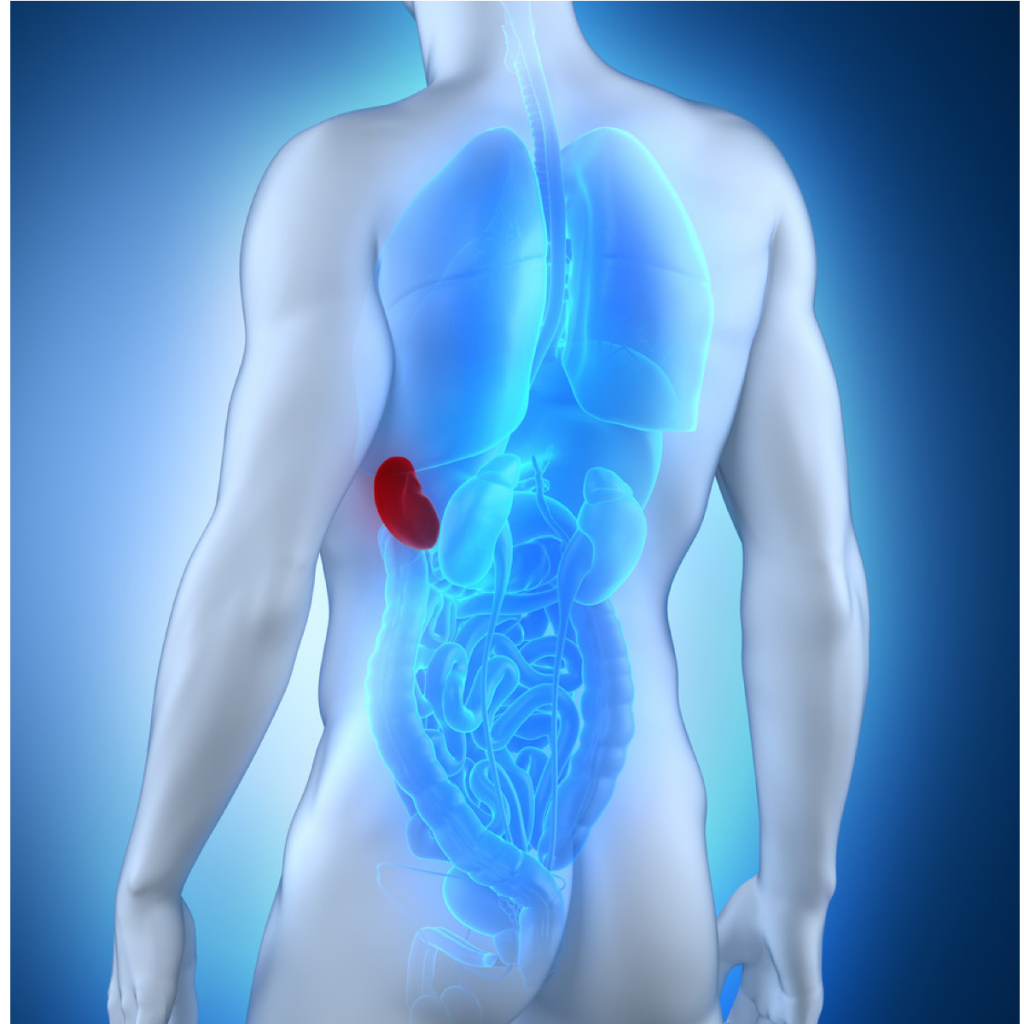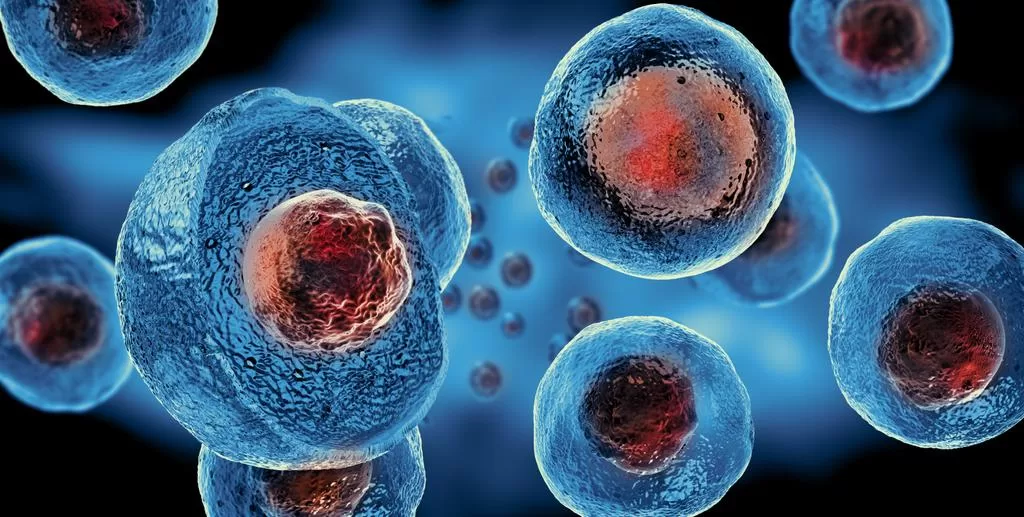Understanding How NMN Is Metabolized in the Body
08/21/2023

NMN, or nicotinamide mononucleotide, is a fascinating molecule that plays a crucial role in the body's metabolism. In this article, we will delve into the world of NMN and explore how it is metabolized in our bodies.

The Basics of NMN and Its Role in the Body
Let's start with the basics. What exactly is NMN? NMN, short for Nicotinamide Mononucleotide, is a derivative of vitamin B3, also known as niacin. It is a key player in the production of another important molecule called NAD+ (nicotinamide adenine dinucleotide).
NAD+ is a coenzyme that is involved in numerous cellular processes, including energy production, DNA repair, and maintaining the overall health of our cells. Without sufficient levels of NAD+, our cells would struggle to perform their functions optimally.
Now that we understand the importance of NAD+, let's delve into the fascinating world of NMN and its role in our bodies.
What is NMN?
As mentioned earlier, NMN is a molecule that acts as a precursor to NAD+. Simply put, it is a building block that our bodies use to produce NAD+. NMN is synthesized from niacin, a vitamin that is commonly found in various food sources.
Once NMN enters our cells, it undergoes a series of enzymatic reactions to be converted into NAD+. This conversion process is essential for maintaining adequate levels of NAD+ in our bodies.
The Importance of NMN in Human Health
Why is NMN so important for our health? Besides its role in NAD+ production, NMN has been linked to various benefits that can positively impact our overall well-being.
One of the most intriguing aspects of NMN is its potential to promote healthy aging. As we age, the levels of NAD+ in our bodies naturally decline. This decline has been associated with age-related health issues. However, studies have shown that NMN supplementation can help restore NAD+ levels and potentially slow down the aging process.
Furthermore, NMN has been found to improve metabolic health. It has been shown to enhance insulin sensitivity, which is crucial for maintaining stable blood sugar levels. By improving metabolic function, NMN may contribute to better overall health and reduced risk of metabolic disorders such as diabetes.
Additionally, NMN plays a vital role in supporting cellular functions. It aids in DNA repair, which is essential for maintaining the integrity of our genetic material. By facilitating DNA repair, NMN helps prevent mutations and ensures the proper functioning of our cells.
In conclusion, NMN is a fascinating molecule that serves as a precursor to NAD+ and plays a crucial role in various aspects of human health. From promoting healthy aging to improving metabolic health and supporting cellular functions, NMN has shown great potential in enhancing our overall well-being.
The Metabolic Pathway of NMN
Now, let's take a closer look at how NMN is metabolized in our bodies. Understanding this pathway will give us insights into how NMN affects our overall health.
When NMN enters our bodies, it undergoes a series of intricate metabolic processes that ultimately contribute to its beneficial effects. One of the key steps in NMN metabolism is its conversion into NAD+.
The Conversion of NMN to NAD+
The conversion of NMN to NAD+ is a vital process that occurs within our cells. This transformation is catalyzed by an enzyme called NMN adenylyltransferase. This enzyme plays a crucial role in ensuring the efficient utilization of NMN.
Once NMN is transformed into NAD+, it becomes an essential coenzyme that participates in numerous cellular processes. NAD+ is involved in energy production, DNA repair, and regulation of various signaling pathways. It acts as a vital mediator in maintaining the overall health and functionality of our cells.
Furthermore, the conversion of NMN to NAD+ is tightly regulated to maintain a delicate balance in our metabolic system. This balance is crucial for optimal cellular function and overall well-being.
Enzymes Involved in NMN Metabolism
In addition to NMN adenylyltransferase, there are other key enzymes involved in the metabolism of NMN. These enzymes work together in a coordinated manner to ensure the proper regulation of NMN and NAD+ levels in our cells.
One such enzyme is nicotinamide phosphoribosyltransferase (NAMPT), which plays a crucial role in the salvage pathway of NAD+ biosynthesis. NAMPT helps convert nicotinamide (NAM) into NMN, which can then be further converted into NAD+. This salvage pathway is essential for maintaining adequate levels of NAD+ in our cells.
Another important enzyme involved in NMN metabolism is nicotinamide mononucleotide adenylyltransferase 2 (NMNAT2). NMNAT2 catalyzes the conversion of NMN into NAD+ and is particularly abundant in the brain. Its presence in the brain suggests its crucial role in maintaining neuronal health and function.
Overall, the enzymes involved in NMN metabolism work in harmony to regulate the levels of NMN and NAD+ in our cells. This intricate network of enzymatic reactions ensures a well-balanced metabolic system, allowing NMN to exert its beneficial effects on our overall health.
Factors Influencing NMN Metabolism
The metabolism of NMN is influenced by various factors. Let's explore two significant factors: age and diet.
Age and NMN Metabolism
As we age, our bodies naturally experience a decline in NAD+ levels, which can impact NMN metabolism. This decline in NAD+ levels is a result of multiple factors, including decreased production and increased consumption of NAD+ by various cellular processes. The decline in NAD+ levels can have a significant impact on our overall health and well-being.
Supplementing with NMN has gained attention as a potential solution to replenish NAD+ levels and support healthy aging. NMN, as a precursor to NAD+, can be readily converted into NAD+ in our cells. By increasing NAD+ levels through NMN supplementation, we may be able to support various biological processes that rely on NAD+, such as DNA repair, energy production, and cellular communication.
Research has shown promising results in animal studies, where NMN supplementation has been found to improve various age-related conditions, including cardiovascular health, cognitive function, and muscle strength. However, further studies are needed to fully understand the effects of NMN supplementation on human aging and to determine the optimal dosage and long-term safety.
Diet and NMN Metabolism
Our diet can also influence NMN metabolism. Certain foods, such as milk, broccoli, and avocados, contain small amounts of NMN precursors, which can contribute to NAD+ and NMN levels in our bodies. These precursors, such as nicotinamide riboside (NR) and nicotinic acid (NA), can be converted into NMN and subsequently into NAD+.
Milk, for example, is a natural source of NR, which can be converted into NMN in our bodies. Broccoli contains trace amounts of NA, another precursor to NMN. Avocados, on the other hand, contain both NR and NA, making them a valuable addition to a diet aimed at supporting NAD+ and NMN levels.
It is important to note that while these foods contain NMN precursors, the amounts are relatively small compared to the levels achieved through NMN supplementation. However, incorporating these NMN-friendly foods into our diet can still contribute to overall NAD+ and NMN levels, especially when combined with other lifestyle factors, such as regular exercise and adequate sleep.
Additionally, maintaining a balanced and nutritious diet is essential for overall health and well-being. By including foods rich in NMN precursors, we can potentially support our body's natural NAD+ and NMN metabolism, which may have positive effects on various physiological processes.
So, next time you're at the grocery store, consider adding these NMN-friendly foods to your cart. Not only will they provide essential nutrients, but they may also contribute to supporting your body's NAD+ and NMN levels, potentially promoting healthy aging and overall well-being.
The Impact of NMN Metabolism on Cellular Functions
Now, let's explore the impact of NMN metabolism on various cellular functions.
Cellular functions are complex and intricate processes that require the coordination of various molecules and pathways. One such molecule that plays a pivotal role in cellular functions is NMN (Nicotinamide Mononucleotide).

NMN, NAD+, and Cellular Energy Production
One of the key roles of NAD+ is its involvement in cellular energy production. NAD+ is a coenzyme that participates in redox reactions, which are essential for the generation of ATP (adenosine triphosphate), the primary source of energy in cells. NMN, as a precursor to NAD+, plays an essential role in maintaining adequate energy levels in our cells.
By supporting NMN metabolism, we're essentially giving our cells an energy boost! NMN is converted into NAD+ through a series of enzymatic reactions, and this conversion is crucial for sustaining cellular energy production. The availability of NMN ensures that the NAD+ pool is replenished, allowing cells to continue their energy-demanding processes.
Furthermore, NMN metabolism is tightly linked to the mitochondria, the powerhouses of the cell. Mitochondria play a vital role in energy production through oxidative phosphorylation, a process that generates ATP. NMN metabolism supports the optimal functioning of mitochondria, ensuring efficient energy production and cellular vitality.
NMN Metabolism and DNA Repair
DNA repair is another crucial function that relies on NAD+. Our DNA is constantly exposed to various damaging agents, such as UV radiation and reactive oxygen species. To maintain the integrity of our genetic material, cells have evolved intricate DNA repair mechanisms.
NMN, as a precursor to NAD+, contributes to DNA repair processes. NAD+ is a cofactor for enzymes involved in DNA repair pathways, such as the base excision repair and the homologous recombination pathways. These pathways ensure that DNA lesions are accurately detected and repaired, preventing the accumulation of mutations that could lead to genetic diseases or cancer.
Moreover, NMN metabolism plays a role in maintaining genomic stability. Genomic instability, characterized by an increased frequency of DNA damage and mutations, is a hallmark of aging and various diseases. By supporting NMN metabolism, we can potentially enhance DNA repair processes and mitigate the effects of genomic instability.
In conclusion, NMN metabolism has a profound impact on cellular functions. By supporting NMN metabolism, we not only provide cells with an energy boost but also contribute to the maintenance of genomic stability through efficient DNA repair mechanisms. Understanding the intricate relationship between NMN metabolism and cellular functions opens up new avenues for therapeutic interventions and the promotion of overall cellular health.
Potential Health Benefits of NMN Supplementation
Now that we understand the metabolic journey of NMN and its impact on cellular functions, let's explore some potential health benefits of NMN supplementation.

NMN Supplementation and Aging
Aging is a natural process that affects us all. However, research suggests that NMN supplementation may support healthy aging by replenishing NAD+ levels and promoting the overall well-being of our cells.
NMN Supplementation and Metabolic Health
In addition to its potential anti-aging effects, NMN supplementation may also have positive impacts on metabolic health. Studies have shown that NMN can improve insulin sensitivity, support healthy blood sugar levels, and regulate metabolism.
In conclusion, understanding how NMN is metabolized in the body gives us valuable insights into its role in promoting cellular functions and overall health. By supporting NMN metabolism through factors like age, diet, and supplementation, we can potentially enhance our well-being and age gracefully. So, let's embrace the power of NMN and unlock its potential!

 Back to Blog
Back to Blog